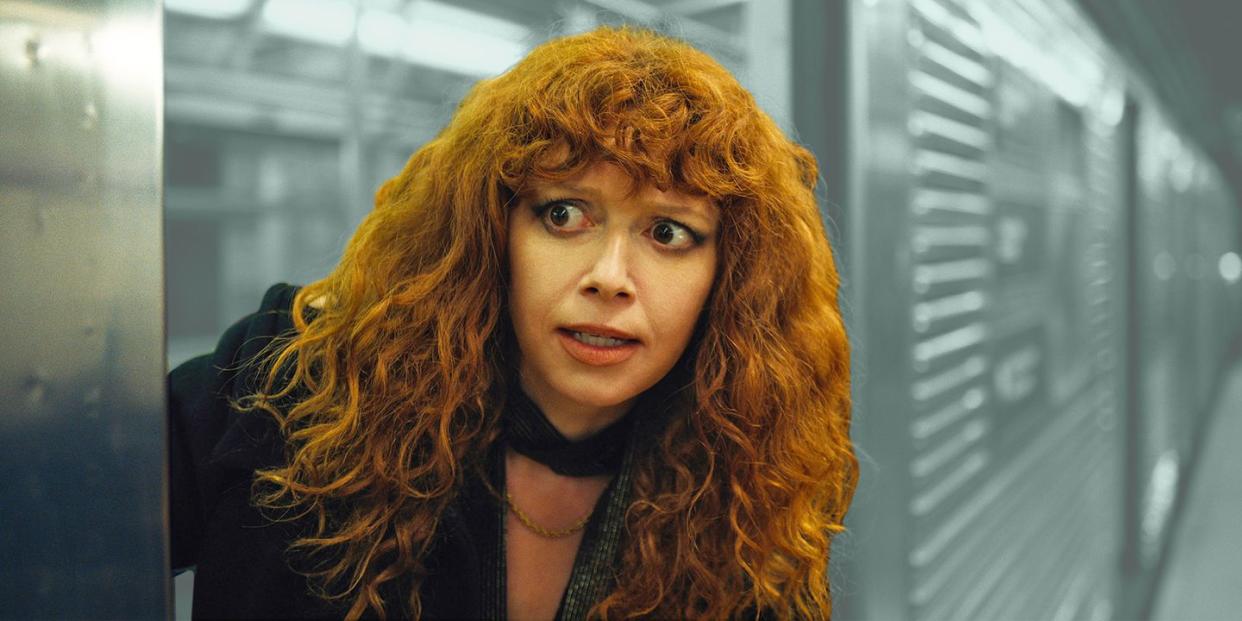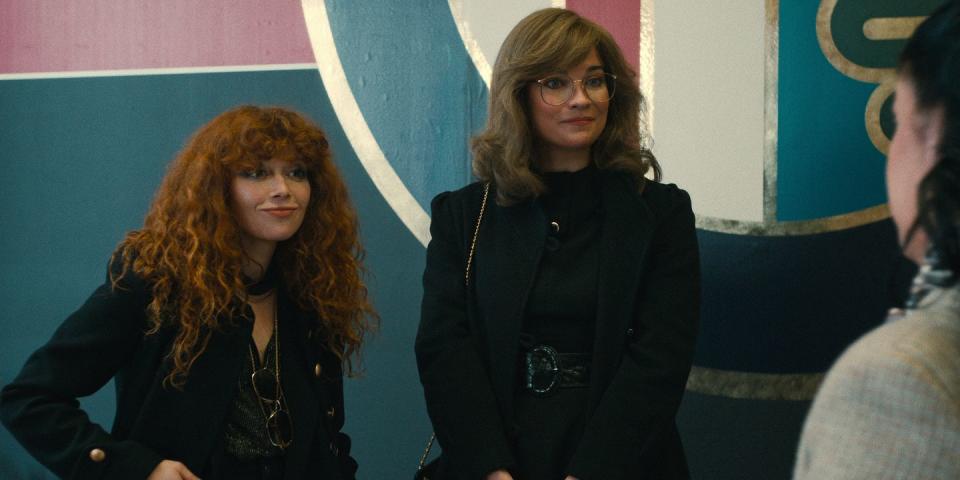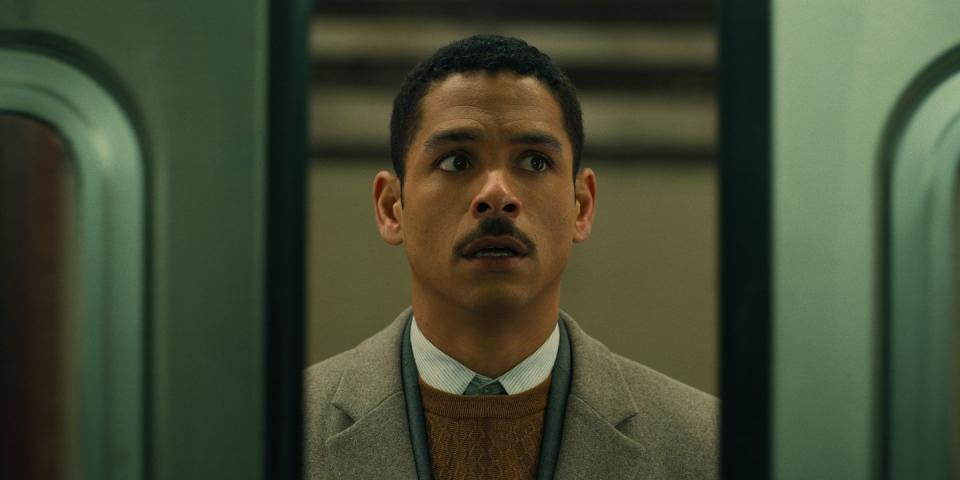'Russian Doll' Has Lost the Plot. Literally.

- Oops!Something went wrong.Please try again later.
When we left Russian Doll's Nadia Vulvokov, she had died 26 times—electrocuted, shot, frozen to death, swarmed by bees (twice). You name it, it happened to her, all in the name of becoming better. That should be enough for one person, right? Well after a nearly three year hiatus, Russian Doll is back, and things aren't looking much better for our girl. While the first outing found Nadia stuck on a time loop that always ended with her perishing in some traumatic fashion, Season Two draws viewers in by sending Nadia on a time-bending ride through 80 years of history, two countries, and perhaps one alternate universe.
All of this is done in pursuit of this season's Big Theme: how we process grief. What Russian Doll manages to do so well in both its seasons is identify a defining question for humanity, and Season Two's crescendo is beautifully, painfully familiar—especially considering how brutal the past couple of years have been for all of us. But where Season One meandered purposeful, Season Two is so convoluted and full of unnecessary red herrings that getting to the end doesn't feel worth the rigmarole.
Just shy of her 40th birthday, Russian Doll picks up with Nadia (Natasha Lyonne) meeting her godmother Ruth at the hospital following a fender bender involving Ruth. Soon after, Nadia boards a 6 train, heading south (nothing good has ever happened on a 6 train), only to realize that she's headed...backward. In time. When she emerges from the train, it's 1982—the year she was born. The time jumps don't stop. Nadia bops in and out of the past and present, considering (and attempting to rectify) the perceived mistakes of the women of her family—inter-family theft! mental rehabilitation stints! family fortunes stolen by the Nazis!—while Alan (Charlie Barnett) traverses his own time warp parallel to Nadia's. (Speaking of Alan, he's woefully under-used. Like Nadia, he's is sorting through his own version of grief, but while Barnett plays it beautifully, the heft of his narrative is shoe-horned into the third act.)

What worked so beautifully in Season One was the contained chaos of Nadia and Alan's perpetual death. Die, come back, learn a small lesson, die, repeat. Watching Nadia and Alan navigate a time loop filled with their own gruesome ends was palatable because it followed a narrative pattern. In Season Two, the writers were tasked with outdoing themselves, developing an even more complex sci-fi shtick as a proxy for some great maxim about being alive. That ultimately all distracts from the story.
The most grounding piece of Russian Doll's second season is how often it likes to reference itself (sweet birthday baby, what a concept!). But inside jokes don't resolve unwieldy narratives. Is it unwatchable? No. Honestly, it's a great endeavor for 4/20, if you catch my drift. As far as storytelling goes, though...well, let's put it this way. Season Two undoubtedly suffers from the LOST effect. So many unimportant, mysterious questions are posed that it's hard to focus on the destination. The humanity gets lost in the murk.

There are bright spots. Two, actually: Greta Lee and Annie Murphy. Lee returns in a larger capacity as Nadia's best friend, Maxine, rattling off hilariously bizarre one-liners in just about every scene she's in ("babies have gills like fish, adorbz"). Murphy appears in one of Nadia's many timelines as a character I won't spoil, adding a much-needed touch of sweetness and gravitas.
Russian Doll isn't a full-blown disaster; I refuse to entirely trash any piece of art that explores how we navigate being alive. The lingering message at the end about grief and how we process it is poignant, and Lyonne continues to prove herself as one of television's most versatile, comedic performers. But in pursuit of trying to outdo its first season, the series gets tangled in its own complexity, stumbling over unresolved plot points while attempting to introduce new ones. And the last thing you want in a story about grief is the added grief of trying to figure out what the hell is going on.
You Might Also Like

